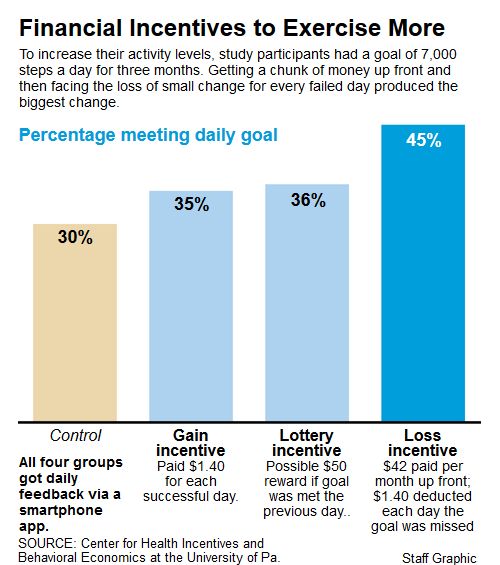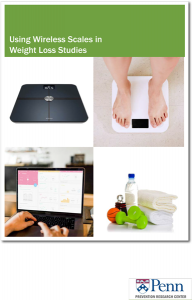
The Philadelphia Inquirer: Feb. 16, 2016
The latest in a series of studies from behavioral economists at the University of Pennsylvania reported an example on Monday: promising people a monthly pot of money to increase their physical activity, but then deducting some every day they missed the goal led to a 50 percent jump in successful days – far better than simply paying them to exercise more.
More than 80 percent of large employers offer some kind of incentive to get workers to take up healthier habits, on the theory that this will improve well-being and reduce health-care costs.
But the trend has grown faster than research into what works best. Commonly offered “hidden” incentives, such as lower insurance premiums the next year, don’t “engage” employees enough for them to change their lives, said Mitesh S. Patel, lead author of the new study and one of 50 faculty, along with UPenn PRC Director, Kevin Volpp, MD, PhD, affiliated with Penn’s Center for Health Incentives and Behavioral Economics.

